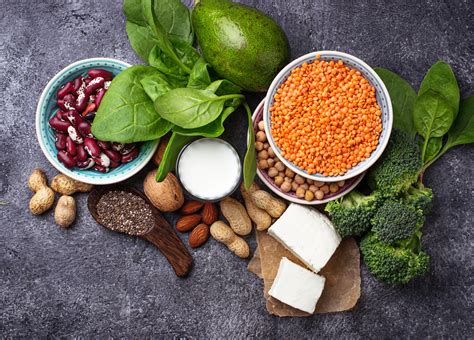How Do You Get Vegetarian Protein?
When I first dabbled in the world of vegetarianism I was concerned with getting enough vegetarian protein (mainly because that’s what everyone else always told me I should be concerned with and they always asked me about it.)
I quickly learned that lots of foods have protein in them that I never knew before! Like broccoli…or cereal grains…I know I know, you have mix and match and it’s not always as straightforward as eating a chicken breast but it’s also not that hard.
I found the variety suited me and the notion of not being married to a meat-based meal 2 or 3 times a day liberating. Personally, I’m not a huge fan of soy products or processed meat-look-alikes you find in most grocery stores nowadays, so I stuck mainly to whole foods. With beans, and eggs, and nuts, and grains and lots of vegetables and some dairy I never felt out in the cold as far as vegetarian protein went.
If you have questions about what to eat I’ve outlined some of the surefire vegetarian protein sources on this page as well as some recipes that will give you a whopping serving of it.
I don’t mean to sound cavalier about protein intake. It is necessary and not getting enough can take its toll on your health, however I also think the U.S. has become somewhat protein and meat obsessed and when I first opened my eyes to the varied sources of protein I couldn’t believe I didn’t know about them earlier. I pretty much always carry a bag of nuts with me now for backup just in case.
Beans
Beans are a fabulous and flexible staple for non-meat eaters. Black beans are particularly nutritious because of their huge phytonutrient load (i.e. they lower the risk of type 2 diabetes, cardiovascular disease and several types of cancer).Black beans, pinto beans and kidney beans are the most popular don't be afraid to try all the different varieties. They're great and easy to throw into soups, make into side dishes or these vegetarian burger recipes. Homemade bean burgers outshine their overly processed soy cousins any day! Nuts and Seeds
Nuts sometimes get a bad rap for being high in fat but remember that it’s the good kind of fat. And this is a perfect source of vegetarian protein since you’re not eating fat from animal meat. Learn about the various health benefits of nuts and seeds and how they’re a great way to get a powerful punch of energy anytime you need one!Nuts and Seeds
Now that you know including nuts into your vegetarian diet is an easy way to get protein, learn how to roast peanuts at home so you'll always have them on hand. They make a really nice snack to munch on by themselves, throw them into a trail mix with raisins and others nuts or even mix into stir fries.Vegetables
Yep, you read that headline correctly. Vegetables are indeed a source of protein, and one that’s too often overlooked in our meat-eating society. Check out these vegetable protein all-stars to learn more about the colorful powerhouses you should stock up on.Eggs
Vegetarian eggs are an extremely versatile and essential ingredient for cooks. There are many different ways to incorporate them into meals and don’t get fooled into thinking they’re just for breakfast. Also don’t get fooled by the whole cholesterol debate either. First and foremost do what your doctor said but if you’re a healthy individual there’s no need to avoid eggs for their cholesterol content. Food cholesterol doesn’t translate into body cholesterol, plus eggs have a wonderful dose of choline in the yolks which is super for brain health.The Answer to the Number One Question: It’s Not That Hard
Getting enough vegetarian protein is really not as hard as people make it out to be. If you are eating a variety of different whole foods and healthy ingredients you’ll likely be fine! Continue to experiment with interesting recipes and you’ll start to enjoy the freedom and creativity that comes with a vegetarian lifestyle.



